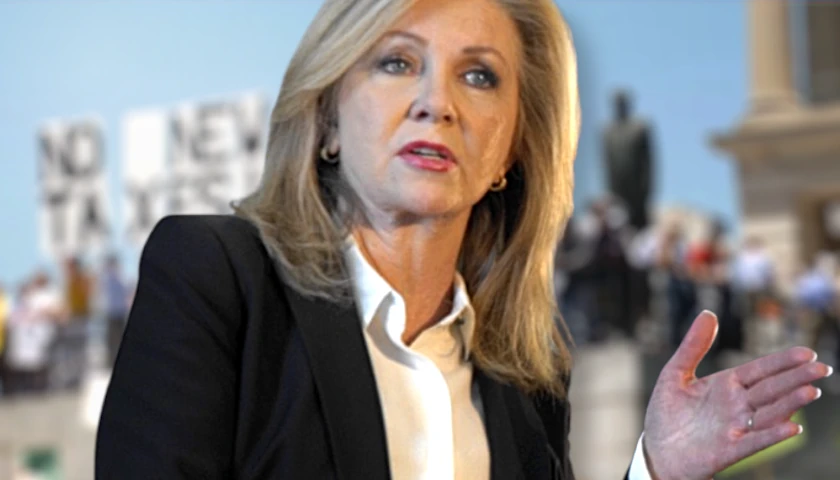NASHVILLE, Tennessee — State Senator Todd Gardenhire (R-Chattanooga) on Wednesday made a pitch to compensate Tennessee taxpayers for surplus revenue.
He was a lone voice, however, before the Senate Finance, Ways and Means Committee voted 10-1 for a bill that allows the money to be used for government spending. Gardenhire was the only one who voted against the proposed legislation.
The bill authorizes state spending to exceed growth in revenues by $438 million, or 2.85 percent, for the current fiscal year. The bill is a way around the Copeland Cap, which says that spending should not exceed the growth of the state’s economy, measured by estimated growth in personal income in the state.
Added to the state constitution in 1978, the budget restraint provision is named for former Republican State Rep. David Copeland. The General Assembly can disregard the cap with a simple majority vote, which has happened numerous times.
During a discussion before Wednesday’s vote, Gardenhire exchanged tense words with Senate Majority Leader Mark Norris (R-Collierville), the bill sponsor in the Senate.
Gardenhire said he didn’t want to see the Copeland Cap undermined. Norris snapped that lawmakers should stop collecting so much in taxes if they want to avoid this situation in the future. “Don’t take it in the first place,” he said, prompting Gardenhire to defend his record as a supporter of tax cuts. Committee Chairman Bo Watson (R-Hixson) pounded his gavel to keep the two in line.
Gardenhire proposed holding some sort of sales tax moratorium, similar to the one held each year before the start of the school year, as a way to compensate taxpayers. He said lawmakers need to start having detailed conversations about surplus revenue early in the legislative session so they can thoroughly discuss what to do with it. The current legislative session is winding down, making it difficult to work on potentially complicated measures.
In an interview with The Tennessee Star, Gardenhire said he’s concerned about the practice of factoring surplus revenue into the baseline for the following year, which keeps driving up the baseline for spending. It’s not what Copeland would want, said Gardenhire, who got his start in politics as a young man by working on one of Copeland’s campaigns.
“He was trying to rein in spending,” Gardenhire said.
Attempts have been made over the years to pass an amendment that would require a two-thirds vote to override the Copeland Cap but none have been successful. Tea Party leader Ben Cunningham backed one such effort in 2010. He was quoted in the Nashville Post as saying that being able to override it with a simple majority vote “makes it meaningless since this is the same vote required to pass a budget.”





